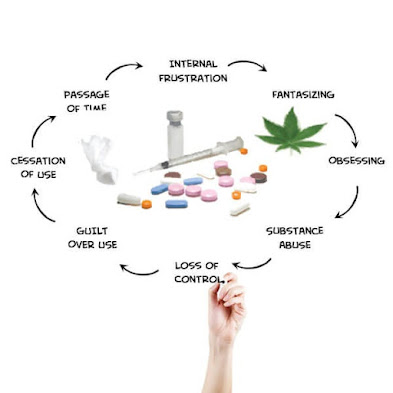Understanding Relapse and Its Role in Addiction Recovery
Introduction:
Relapse is a common occurrence in addiction recovery, and understanding its nature and triggers is crucial for sustained sobriety. This article explores the concept of relapse, its potential causes, and strategies to prevent and manage relapse during the journey of addiction recovery.
Defining Relapse:
This article provides a comprehensive definition of relapse, explaining its occurrence as a return to substance use after a period of abstinence. It emphasizes that relapse is not a sign of failure but an opportunity to learn and reinforce recovery strategies.
Identifying Relapse Triggers:
Recognizing and understanding relapse triggers is essential in preventing a setback. This article explores common triggers such as stress, negative emotions, social pressures, and environmental cues, and offers insights into how individuals can identify their own unique triggers.
Developing Relapse Prevention Strategies:
This article delves into the importance of developing personalized relapse prevention strategies. It discusses strategies such as creating a relapse prevention plan, engaging in ongoing therapy and counseling, practicing self-care, building a support network, and seeking professional help when needed.
Addressing Underlying Issues:
Unresolved underlying issues often contribute to relapse. This article highlights the significance of addressing mental health conditions, trauma, and co-occurring disorders during addiction recovery. It emphasizes the role of therapy and counseling in addressing these underlying issues.
Learning from Relapse:
Relapse can be a powerful learning experience. This article encourages individuals to view relapse as an opportunity for self-reflection and growth. It explores how individuals can analyze their relapse, identify triggers and patterns, and adjust their recovery strategies accordingly.
Maintaining Resilience and Perseverance:
Recovering from a relapse requires resilience and perseverance. This article provides practical tips and techniques for building resilience, including practicing self-compassion, setting realistic expectations, staying connected to a support network, and embracing a growth mindset.
Conclusion:
Relapse is a common and challenging aspect of addiction recovery, but it does not signify failure. By understanding the nature of relapse, identifying triggers, developing relapse prevention strategies, addressing underlying issues, and learning from setbacks, individuals can navigate the recovery journey with increased resilience. Remember, recovery is a lifelong process, and each setback can be a stepping stone towards a stronger and more successful recovery.


Comments
Post a Comment